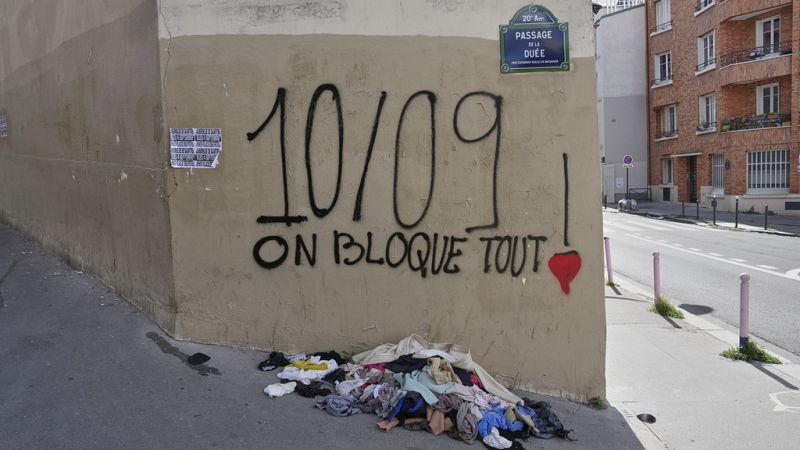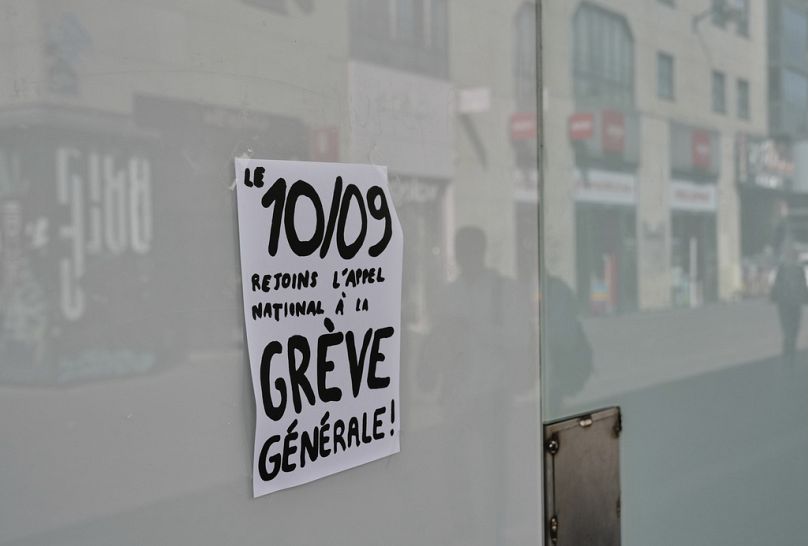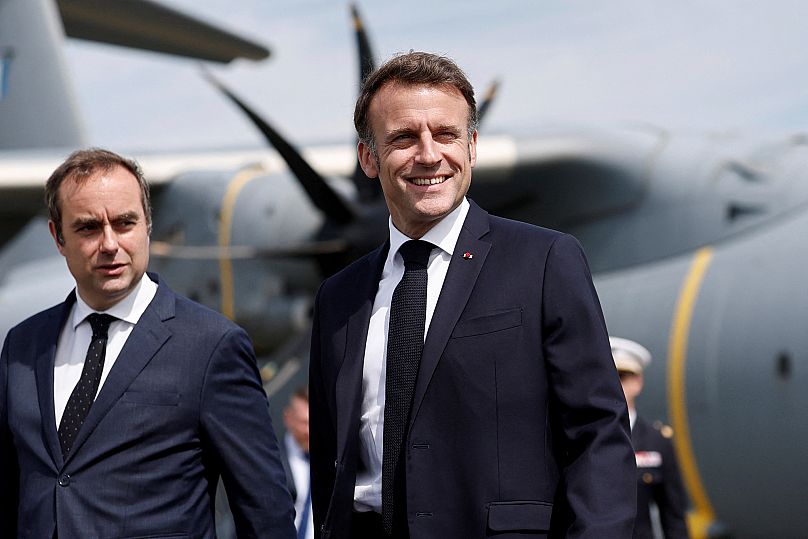After the prime minister's fall, France braces for 'Block Everything' protests

After the collapse of Prime Minister François Bayrou’s government on Monday night, France seems to be heading into a renewed period of unrest.
With frustration over austerity plans boiling over, grassroots groups have called for a nationwide "Block Everything" movement on Wednesday that aims to paralyse transport, schools and daily life.
Although French President Emmanuel Macron named a new prime minister, his long-time ally Sébastien Lecornu, within 24 hours, certain participants expressed their disbelief and discontent on social media.
Numerous users demanded that the French leader dissolve the National Assembly and call snap elections.
The protests — organised largely through Telegram channels and social media — have no central leadership, leaving authorities guessing about the scale and scope of Wednesday's disruption.
Messages circulating online have urged supporters to blockade Paris' ring road, Europe's busiest urban motorway with 1.2 million vehicles a day, and even sabotage power at certain metro and train stations.
Others have floated symbolic actions such as covering far-right newspapers at newsstands with left-wing ones.
The French government is deploying 80,000 police officers amid fears that as many as 100,000 people could take part.
Although comparisons are already being made with the 2018 Yellow Vests revolt, "Block Everything" is less structured, having emerged only this summer.
But its online momentum has been fuelled by anger over inflation and what many see as a dysfunctional political class, institutional gridlock, and announced austerity measures.
Parisians bracing for snap elections and turmoil
On the streets of Paris, some are bracing for the possibility of another government dissolution. Jaela, a French-Australian student in Paris, said: "If there's an election, I will vote, for sure. But I'm hoping the politicians will find some sort of compromise."
Jean, a retired headmaster, told Euronews, "I will definitely go and vote. But for whom? That's a question I'd like to explore further. Certainly not for the far-right."
"We are witnessing widespread hatred for the president. Suddenly, many people have started to hate this man. I don't know exactly why," Jean explained, saying he does not support the protests.
Two major unions, the CGT and SUD, have thrown their weight behind Wednesday's action, while broader strike calls are planned for 18 September.
According to an Ipsos poll, 46% of French people support the movement, with backing highest among left-wing sympathisers but extending to more than half of far-right National Rally voters as well.
Anger is also spreading across several professional sectors. Healthcare workers and pharmacy workers are protesting cuts to medical reimbursements and discounts on generic drugs. Their unions have called for a nationwide shutdown on 18 September.
Carine, a pharmacist preparing to strike next Thursday, told Euronews: "There are around 20,000 pharmacies in France, and at least 6,000 could close due to these measures."
"That means whole communities are losing local access to medicine. The government is ignoring the reality of our profession."
For some, Wednesday's protests are about sending a warning to those in power. Thomas, a university student, said he will take part.
"I think it's time for Macron and politicians to understand we are serious," he told Euronews.
"We are angry with the political system and the fact that the ultra-rich and corporations are not paying enough taxes. Meanwhile, we're the ones being asked to make an effort and to work more."
Like many other organisers in the movement's chat, he declined to say exactly what his group was planning for Wednesday.
One of ex-PM François Bayrou's most unpopular proposals to rein in the country's ballooning public deficit was to slash two bank holidays, provoking the anger of many French citizens.
Gérard, a butcher, however, believes that compromises will need to be made.
"I believe most of us are ready to make an effort and to work more. We need to wake up because the economic indicators are bad. We don't have a choice at this point," he told Euronews.
Today



